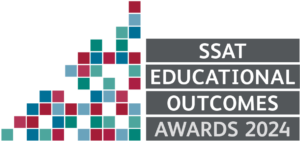Deaf Hub

The Deaf Hub
The Deaf Hub at St John Fisher School was established in September 2016 in conjunction with the Local Authority as part of an overall strategy to develop and embed the work of Hubs with particular specialisms across Peterborough. Our work has three main aims:
- To offer up to six places for Deaf students and ensure that these students receive specialist support at the same time as having an inclusive and mainstream educational experience.
- To ensure that best practice in supporting learners is adopted across the school, so we provide a Deaf friendly environment that focuses on improving the quality of communication, speech and language for all students.
- To become a centre of specialist expertise offering a service to schools across Peterborough, ensuring that professionals and parents can access information and resources to support learners regardless of the school they are placed in.
What do we do?
- We support learners in the classroom and ensure that they can access mainstream lessons and feel included in every part of the curriculum.
- We support staff to ensure that first quality teaching is experienced by learners in every classroom.
- We support the development of speech, language and communication skills in Deaf learners by providing additional support with vocabulary and key concepts, both in lessons and also with intervention lessons in small groups if required. Much of this work is of a practical and ‘hands on’ nature.
- We support teaching staff to deliver a modified curriculum if required, including the delivery of entry level qualifications at Key Stage 4.
- We support the social and emotional development of students by offering lunchtime activities and emotional literacy support.
- We create an individualised programme for each learner, based on their needs, and continually evaluate the impact of interventions.
- We liaise with parents and carers to ensure they feel involved with their child’s education and are at the heart of the process.
- We prepare students for the next steps in their education and ensure that they are fully prepared for post-16 transition.
- We prepare students with a range of life skills to enable them to live independently as adults and to become active and responsible citizens, who are able to self-advocate.
- We seek opportunities for students to socialise with Deaf peers from other schools and give them access to Deaf-friendly enrichment opportunities
- We engage with the wider community.
- We support primary schools with transition events for KS2 learners.
How are we a ‘Deaf-friendly’ school?
We audit our physical environment to ensure that every classroom and space has optimum listening conditions. We have had support form the Local Authority to complete an acoustic audit and we have invested in a number of Juno Soundfield systems throughout the school, which has benefited every student who works in there.
We also educate our students and staff. All teaching staff have received training in Deaf awareness and the development of speech and language. The Teacher of the Deaf has a level 1 BSL qualification and is working towards level 2. The assistant SENCO has BSL skills up to a level 2 qualification. Staff are also receiving BSL training to further develop their skills. Our ethos is that the effective teaching of Deaf students is an expectation of first quality teaching in every classroom in our school.
Our students are made aware of the need to have a good listening environment through work in form time and also as part of our activities for Deaf Awareness week. We also embed Deaf education within our PSHE modules on diversity and encourage all students to celebrate and embrace our diverse community.
Cambridge House is our designated ‘Deaf-friendly’ house. Our pastoral staff have also worked closely with our HLTA and Teacher of the Deaf to ensure an inclusive approach to safeguarding, well-being and welfare. We ensure that our Deaf students are included in wider aspects of school life and we also give them opportunities to meet Deaf peers form other schools and the wider community.
Our Deaf Hub room is open to all students and we do a lot of intervention linked to speech and language which is not exclusive to Deaf students
How are Hub places allocated?
All students must have an EHCP to be placed in a Hub. However, possession of an EHCP plan does not automatically guarantee a placement. Hub places are allocated by the Local Authority SEND panel and you should contact your local officer for more details.
© 2022 Created by St John Fisher Catholic High School






